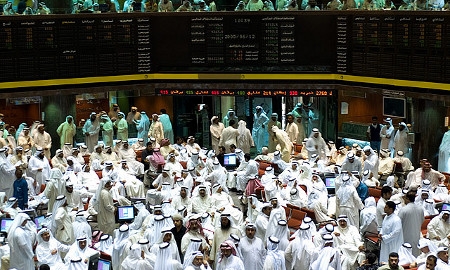Last year marked the 50th anniversary of the Kuwait Stock Exchange and was a year filled with novelties and innovations for the bourse.
In the first half of 2012, the KSE rolled out its new NASDAQ OMX powered trading platform with proven X-stream technology that supports trading of cash equities and forwards. The next phase of this move will include additional derivative products and bonds. The stock exchange has also ramped up its surveillance system, by enlisting NASDAQ OMX index calculation technology and a SMARTS powered surveillance solution.
The recently formed Capital Market Authority also stepped up its efforts last year to put the KSE into tip-top shape by way of various austere measures, thus ensuring listed firms are in full compliance with Kuwait’s new tightened regulatory regime. Measures include the suspension of trading for firms who do not publish their quarterly and annual financial results in a timely fashion.
Moreover, the CMA’s threat was not empty; in mid-May the regulator suspended several companies from trading as they hadn’t declared their financial results for Q1 within 45 days.
The outcome of the CMA’s stricter regime has been a leaner exchange with greater transparency and accountability. It has also paved the way for the privatization of the KSE, something that has been discussed for a number of years but is now finally taking shape.
Last summer, the bourse enlisted the services of HSBC to oversee the transformation, which should be complete sometime early this year.
| The privatization of the kse is part of kuwait’s vision to diversify away from oil and boost its financial sector |
The decision to make the KSE itself public – something that 91% of respondents in a November 2012 survey believe will have a positive impact on the bourse – is part of Kuwait’s vision to diversify away from oil and boost its financial sector. Expectations, considered by some overly ambitious, are for the financial services sector to contribute 25% of the gross domestic product by the year 2022.
Faleh Abdullah Al-Roqobah, President of the KSE, agrees that Kuwait has been highly dependent on oil and must now diversify.
“Since 2004, the oil price has helped us quite a lot. But I think that the country is thirsty for development in areas such as healthcare and economic diversification. I hope that we will finally be in the ideal situation for the private and state companies to move forward in Kuwait,” he says, adding: “I think that development goes hand in hand with the stock markets.”
Kuwait’s stock market is one of the largest in the Gulf region, after Saudi Arabia and Qatar. KSE’s market capitalization grew from $100.9 billion in 2011 to $103.9 billion the following year, growth that comes as happy news, especially considering the events of 2008, when the global financial crisis caused the KSE to implode.
Over the course of just six months, the bourse had lost more than 40% and was forced to close by court order.
Since then, the KSE has slowly recovered investor confidence (2012 was the first time in four years that the KSE Price Index grew), and no doubt the CMA’s sobering measures have helped.
For Mr. Al-Roqobah, Kuwait’s economy is strong enough to continue attracting investment, especially from abroad. “Kuwait was and will always be a target, a good opportunity for foreign investors because it is safe. The revenue is clear and the surplus keeps coming. So, what more do investors need?” he says.

0 COMMENTS